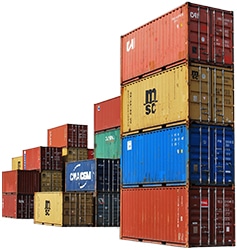How To Import Hard Liquor like Whiskey, Vodka and Tequila into the United States and Profit
Free Alcohol Importer Toolbox
All the formulas and tools that Pro importers use to run a successful alcohol import business.
Start like a pro and avoid costly mistakes:
- Toolbox: Essential formulas and tools that professionals use to run their business.
- Startup Checklist: Step by step checklist to open and run your business.
- Essential Resources: Get access to tools, templates, and must-know regulations that will save you time and money.
Get it all Free for a limited time.
Get it FREE instantly!
Importing spirits such as Vodka, Whiskey, Tequila and other hard liquor into the United States is a very lucrative business. It offers the largest profit margins. But that doesn’t mean that getting into this field is easy. After years of licensing and helping hundreds of alcohol importers because successful, Rezzonator Services has put together this detailed guide on liquor importing.
What Makes the Alcohol Industry Resilient Even During Global Challenges like Pandemics?
Turns out that the alcohol industry, particularly the hard liquor segment, demonstrates remarkable resilience in the face of global challenges, including economic downturns and crises such as pandemics. Historically, alcohol sales have not only endured but often surged during tough times. This phenomenon has been attributed to various factors, including human behavioral responses to stress and the seeking of comfort in familiar rituals, of which social drinking is a prevalent aspect.
Digging deeper, during the COVID-19 pandemic, this trend persisted, with case studies revealing an uptick in hard liquor sales. Isolation and social distancing measures led to a shift in consumption patterns, where consumers began purchasing more alcohol for home consumption, with a significant proportion opting for premium spirits. This shift suggests both a coping mechanism and an indulgence in the absence of other entertainment and social activities, thus underscoring the inelastic nature of demand for these products.
Understanding consumer behavior is key to comprehending the industry’s stability. Despite uncertain times, consumers crave normalcy, often reflected in their purchasing habits. Hard liquor, offering both a sense of indulgence and a means to moderate stress, holds its ground as a consumer staple. This steadfast demand positions the hard liquor market as a relatively safer investment during periods of uncertainty, making the import of whiskey, vodka, and tequila into the United States a potentially robust and profitable endeavor.
Why is Licensing a Key Factor in the Profitability of Importing Hard Liquor?
The import and distribution of hard liquor in the United States is governed by a complex system of licenses, each with its own set of regulations and fees. Navigating this system and obtaining the correct licenses is essential for legal operation and significantly affects profitability. Federal and state authorities require different licenses, and businesses must comply with the regulations at both levels. A solid understanding of the licensing landscape is crucial for any entity looking to import hard liquor like whiskey, vodka, and tequila.
A comparative analysis of wholesaler versus importer licenses reveals distinct differences in both cost and potential profit margins. A wholesaler license allows a company to purchase alcohol from producers or importers and sell it to retailers. In contrast, an importer license grants the ability to directly import liquor from international sources. While importer licenses may come with higher initial costs, they also offer the importer greater control over the supply chain, potentially leading to higher profit margins through direct sourcing and reduced middleman fees.
Strategically, acquiring the right type of alcohol import license aligns with a business model tailored to the company’s strengths and market goals. For businesses that excel in logistics and international relationships, an importer license offers the opportunity to leverage those strengths for increased profits. Conversely, for those with robust domestic networks, a wholesaler license could streamline operations and improve profitability. Ultimately, the decision of which license to pursue should consider the long-term business model and market positioning, ensuring alignment with the company’s growth strategy and profitability targets.
Need Help With Alcohol Licensing?
CONTACT US
Table of contents:
- What Makes the Alcohol Industry Resilient Even During Global Challenges like Pandemics?
- Why is Licensing a Key Factor in the Profitability of Importing Hard Liquor?
- How Do Import and Wholesaler Licenses Add to the Profitability of Importing Hard Liquor?
- Why is Hard Liquor Licensing More Expensive but Potentially More Profitable Compared to Beer or Wine?
- How Does Dealing with Fewer Bottles Translate to Higher Profits in the Hard Liquor Industry?
- What Other Strategies Can Be Employed for a Profitable Hard Liquor Import Business?

How Do Import and Wholesaler Licenses Add to the Profitability of Importing Hard Liquor?
Obtaining the right licenses for importing hard liquor, such as whiskey, vodka, and tequila into the United States is crucial for ensuring legality and profitability in this sector. Import licenses allow a company to bring alcoholic beverages into the country, while wholesaler licenses permit the sale to retailers or other distributors. These licenses serve as a barrier to entry, creating a level of protection from oversaturation in the market and enabling higher margins for licensed importers.
The financial advantages of holding both import and wholesaler licenses are significant. A wholesaler license not only allows for importing goods but also adds the ability to distribute directly to retailers. This reduces dependency on third parties, allowing for better control over the supply chain and an increase in profit margins. Direct importing can result in more competitive pricing for consumers, fostering a loyal customer base willing to pay for quality international spirits.
Maximizing profits in the importation of hard liquor goes hand in hand with navigating the legal framework effectively. By understanding the complexities surrounding import and wholesaler licenses, businesses can ensure compliance with federal and state regulations while exploiting the benefits of direct importing. Rigorous adherence to legislation not only averts costly penalties but also establishes credibility and trustworthiness, building a strong foundation for long-term success in the lucrative market of imported hard liquor.
Why is Hard Liquor Licensing More Expensive but Potentially More Profitable Compared to Beer or Wine?
The alcohol industry operates within a stringent regulatory framework that categorizes spirits, wine, and beer differently, often resulting in varying economic impacts for each category. When it comes to hard liquor—such as whiskey, vodka, and tequila—licensing fees are notably higher than those for beer or wine. This increased cost is tied to the perceived need for tighter regulation due to the higher alcohol content, potential for abuse, and the broader impact on public health. As such, federal, state, and local governments mandate rigorous criteria that must be met, reflecting in elevated costs for obtaining and maintaining a liquor license.
Despite these steeper initial outlays, the hard liquor segment has the potential for higher profit margins primarily due to its premium pricing structure. The distilled spirits sector often balances the increased licensing expenses with the ability to set higher price points, targeting a market demographic that seeks quality and is willing to pay extra for it. The product positioning of hard liquor as a premium offering allows for better profit ratios compared to the lower per-unit revenue typical of beer and wine sales. Moreover, exclusive and aged liquor varieties can command a substantial premium, further enhancing profitability.
An in-depth market analysis reveals that consumer preferences exhibit a willingness to invest in high-quality spirits. Unlike beer or wine, which may be perceived as daily consumables, hard liquor is often associated with special occasions, gifting, and a taste for the finer things. This consumer willingness to pay more is not just conjecture; official sales data point to robust growth in the premium and super-premium spirits sectors. The enduring appeal of hard liquor, even during economic downturns, evidences a resilient consumer base that prioritizes quality over quantity—fueling a potentially lucrative venture for those who can navigate the complex licensing landscape.
If you’re ready to get into this lucrative fied then the alcohol licensing experts at Rezzonator Services offer a free 15 minute consultation. Click here to take advantage of this free consultation.
Need Help With Alcohol Licensing?
CONTACT US
How Does Dealing with Fewer Bottles Translate to Higher Profits in the Hard Liquor Industry?
When comparing hard liquor to its alcoholic counterparts such as beer or wine, a key factor in its profitability is the logistics of inventory and storage. Distilled spirits like whiskey, vodka, and tequila typically have a higher alcohol by volume (ABV) content, which means a smaller volume can be sold at a higher price point. Consequently, retailers and importers manage fewer bottles and cases, reducing the need for extensive storage space and minimizing inventory holding costs. Efficiency in stock management and lower overheads inevitably bolster profit margins in the hard liquor industry.
Hard liquor’s compact nature lends itself to economies of scale, a vital aspect of profitability. As importers purchase and sell in smaller, more valuable increments, their return on investment per unit is often greater compared to high-volume, low-cost beverages like beer and wine. This is because each bottle of hard liquor commands a premium price due to its concentrated form and longer aging process. Importers can leverage these smaller, high-value inventories to optimize pricing strategies, creating a profitable balance of supply and demand that can outpace lower-alcohol-content beverages.
Moreover, the logistical advantages of shipping and handling hard liquor cannot be understated. As the volume of product is typically smaller, shipping costs can be lower, and the risk of breakage during transit is reduced due to the sturdy packaging often adopted by premium hard liquor brands. Additionally, the longevity and non-perishable nature of distilled spirits negate the urgency required for perishable alcohol types, providing importers with flexibility in transportation scheduling and reducing loss from spoilage. These factors collectively streamline supply chain operations and contribute to higher profitability within the hard liquor segment of the import business.
What Other Strategies Can Be Employed for a Profitable Hard Liquor Import Business?
The hard liquor market in the United States presents a fertile ground for profitability, particularly when businesses employ astute and diverse strategies. By identifying and targeting niche markets, companies can cater to the specific taste preferences and demands that mainstream brands may overlook. For instance, focusing on single malt whiskies or craft tequilas can captivate enthusiasts willing to pay a premium for distinctive and high-quality spirits.
Leveraging the growth of e-commerce can substantially increase profit margins for alcohol imports. Direct-to-consumer (DTC) sales models bypass traditional intermediaries, granting importers greater control over pricing and customer relationships. This direct engagement not only builds brand loyalty but also reduces overhead costs associated with brick-and-mortar distribution. In the era of digital transformation, developing a robust online platform for the sale of imported liquors can place a business ahead of competitive market trends.
Finally, forging brand partnerships and securing exclusivity deals can heighten a product’s value and desirability within the market. Exclusive imports can become synonymous with quality and luxury, driving demand and enabling pricing strategies that reflect the exclusivity. Collaboration with celebrities or well-known industry figures can also amplify a brand’s reach and appeal. By carefully curating their portfolio and negotiating exclusivity agreements, importers can ensure a unique product offering that stands out in the crowded spirits marketplace.
GET STARTED
- Import Licensing Experts
- Hundreds Of Cases Approved
- Money Back Gurantee
- NO Pressure FREE Consultation

